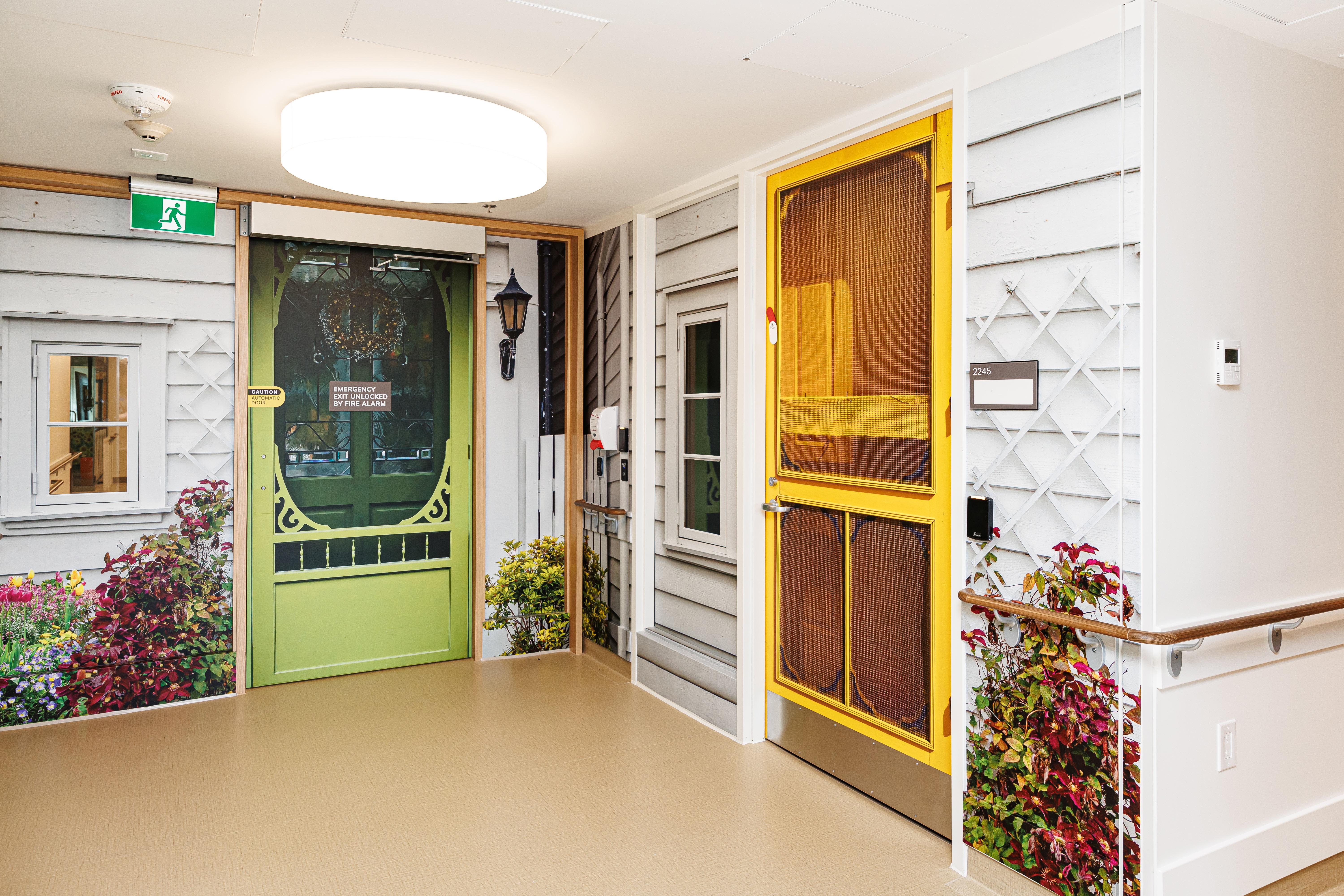Emotion-based care
Currently, 66% of people living in Peel’s Long Term Care home have dementia. To support the growing number of people living with dementia, Peel Region’s Long Term Care Centres balance the clinical and emotional needs of the people in our care.
Our homes were among the first in Ontario to adopt the Butterfly Approach, an emotion-based model of care, through collaboration with Meaningful Care Matters. The Butterfly Approach was first implemented at Malton Village, and has since expanded to all 5 Peel Region Long Term Care Centres and Adult Day Services.
Our emotion-based model for dementia care uses innovative, person-centre approaches to meet the complex care needs of people living with dementia. Our journey to implement emotion-based care continues to evolve as we create more home-like spaces, and as we look for new ways to support our team members and care partners with strategies to improve the well-being of people living with dementia.
Benefits of emotion-based care:
- Focuses on the person.
- Centres care around the person’s interests and experiences.
- Recognizes that people living with dementia need to be understood and treated as people with feelings, emotional needs, and a need to connect.
We support and sustain this by connecting through residents’ individual lived experiences. We know that people living in long-term care thrive when we recreate past experiences, support hobbies, and create spaces that look, sound, and feel familiar.
Implementing person-centred care models using emotion-based approaches has positive outcomes for people living and working in long-term care homes. It also impacts families’ feelings of hope and trust in their loved ones’ care. As a result of the success we’ve seen, we will be spreading the approach throughout all our long term care home areas.
Our promise to you
- People living in our homes will live a life with purpose and meaningful activities.
- They will be surrounded by team members who interact with and care for them with empathy and kindness.
- Employees will truly know their residents, their residents’ families, and understand their lived experiences.
